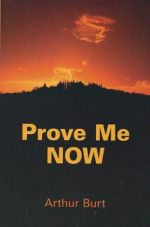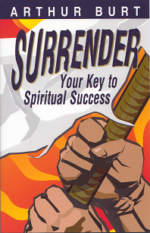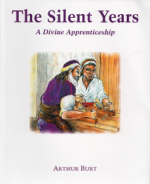One of the brightly coloured cards Arthur would offer to people he was ministering to declared:
“LIVING WITH OTHERS IS JUST AS HARD FOR THE OTHERS”
Is the image I have of myself the way God sees me, or am I deluded, thinking I am better than others?
Edwin Orr, the hymn writer, penned the following:
“Search me, O God, and know my heart today,
Try me, O Lord, and know my thoughts, I pray,
See if there be some wicked way in me,
Cleanse me from every sin and set me free”.
There is the image I have of myself, the image of myself I want others to see and the way God sees me. Only the way that God sees me is the true state of the person I am. Yes, God loves me just as I am, but He does not want me to remain just as I am. I must find my true identity in Jesus. His is the character God is working to manifest in my life.
Let us consider the life of the Old Testament prophet, Elijah, mightily used of God. He spoke the word which stayed the heavens from rain. He encouraged the widow woman in Zarephath that, in spite of the famine which he spoke into being, “The barrel of meal shall not waste, neither shall the cruse of oil fail until the day that the Lord sends rain upon the earth“, (1 Kings 17:4).
In other instances, Elijah cried to the Lord and resurrected a woman’s dead son, called down fire from heaven on a water-sodden altar before slaying the prophets of Baal. All these mighty miracles performed through this man, and yet, in 1 Kings 19, we find him bewailing his life, sat under a juniper tree because Jezebel had threatened to kill him.
1 Kings 19:4 records Elijah requesting his own death, wallowing in depression and self-pity: “It is enough; now O Lord, take away my life, for I am no better than my fathers”.
Who told him that he was better than his fathers? Was the image he had of himself created from the fact that God had used him so mightily? The contradiction of the man used of God, and the man running scared from a woman threatening his life, is so evident in this account. Had Jezebel not obliged his request to the Lord to take away his life?! Elijah’s believing was flawed because, in his pride, he thought he was better than others. The Lord questions Elijah as to why he was in the cave. Verses 10 and 14 reveals Elijah’s belief that he was the only person left who had not bowed to Baal. The Lord corrected him in declaring there were 7,000 people who had not done so!! This account signaled the end of his ministry and his mantle passed on to Elisha.
What can we learn from the life of Elijah? Perhaps we should all consider the danger in believing that because God uses us, it means our lives are in order with His plans and purposes.
The Holy Spirit is always challenging us to change, always wanting us to examine ourselves to check if our hearts are right with God.
“Let him who thinks he stands, take heed, lest he fall”. (1 Corinthians 10:12)







